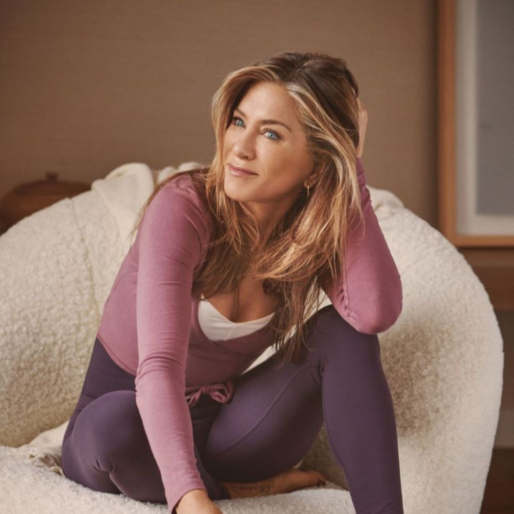The longest-running study on human happiness has revealed the secret to a long and healthy life
And it’s much more simple than you may think.
By Alexandra English

WE’RE obsessed with uncovering the secret to a long and happy life. Throw that search term into Google, and in 0.49 seconds, you’ll have more than 3.6 billion results. But we don’t just want to be told that we’ll live longer if we eat good food and get plenty of sleep. We want a quick fix, we want it to be fun, and we want it, by some miracle (hopefully, fingers crossed!), to be some newly discovered benefit of our favourite vice, like it apparently was for Dorothy Howe, a 100-year-old woman from England who, in 2013, declared the secret to her longevity was a regular glass of whisky and her 15 cigarettes a day habit. (It’s more likely there were some good genes, effective healthcare and a heady dose of magical thinking at play there.)
Now, thanks to the Harvard Study of Adult Development — the longest-running scientific study into human happiness — we have been let in on the secret. Robert Waldinger is a professor of psychiatry at Harvard University and the director of the Harvard Study. He and his research team found that the number one predictor of whether we will grow old and how happy and healthy we will be when we get there has (almost) nothing to do with our cholesterol levels: it’s all about how strong our relationships are.

Talking over Zoom from Boston, Waldinger appears exactly as you’d expect an expert in human happiness to: that is, deeply content (he is also a Zen priest). He explains that the correlation between relationship satisfaction and wellbeing is not a new discovery. We’ve long been told that it’s the quality of our relationships, rather than the quantity, that is best for our emotional and mental wellbeing. What’s new about the Harvard Study is that it has found a connection between strong relationships and physical wellbeing.
Waldinger explains that the Harvard Study began in 1938 as two separate studies. The first focused on young-adult development using a sample of 268 second-year Harvard undergraduate men (future president of the United States John F. Kennedy Jr. among them). Waldinger is quick to point out that he’s aware of the study’s limitations: “If you want to study young-adult development, you study all white men from Harvard, right?” he quips. “It’s the most politically incorrect sample you could possibly have.” It broadened slightly in the 1970s when the study’s then-director, psychiatrist George Vaillant, merged it with the second study: 456 boys of about 12 years old who came from some of Boston’s most disadvantaged areas. It had set out to find answers to how, despite their troubled family lives, these boys were beating the odds and all on paths to leading better lives. “Both studies were about thriving, but in very different groups: one very privileged, one very underprivileged,” Waldinger explains. When the studies merged, the researchers set out to find answers to what constitutes a happy and meaningful life.
Waldinger is the study’s fourth director. When he came on board in 2002, he broadened the sample even further, diversifying it by including 1300 of the original men’s spouses, children and baby boomer grandchildren.
The way the study worked was this: every two years, researchers sent participants questionnaires about all aspects of their lives, such as their employment, their voting preferences, the state of their friendships and romantic lives, the anxieties that woke them up at 3am, and what it felt like to become parents. Every five years, researchers would assess their physical health; every 15 years, they would conduct in-person interviews (which moved online during the pandemic); and in the participants’ later years, they conducted DNA tests and brain scans. (Twenty-five of the study’s participants have chosen to donate their brains to the study.)
Those LOOSE CONNECTIONS you have with people you SEE OFTEN but DON’T KNOW very WELL can have a DIRECT EFFECT on your HAPPINESS
The findings have been published in a new book, The Good Life: Lessons from the World’s Longest Scientific Study of Happiness, which Waldinger co-authored with the study’s associate director, Marc Schulz, a professor of psychology at Bryn Mawr College in Pennsylvania. They explain how, across thousands of documents, they have been able to see these people fall in and out of love, wealth, social status and success. They’ve watched them become parents and grandparents and have seen them die. What they found was that, in the end, as generations of participants reached old age, they would make a point of expressing that what they treasured most throughout their lives was their relationships, more so than any success, status or wealth.
“It made sense that if you had better relationships, you’d be happier,” Waldinger says now, adding that the findings that relationships impacted the subjects’ physical health were surprising. “When it emerged in our data, we didn’t believe it. How could relationships make it less likely that you’d get heart disease or type-two diabetes? At first, we thought, Well, maybe that’s just an idiosyncratic finding in our study, but then other studies began to find the exact same thing.” To combat their diversity limitations, Waldinger and Schulz turned to similar studies from around the world and discovered that they all had similar findings: the more socially connected you are, the longer and better you are likely to live. “It’s pretty well established that social connections are protective of health, and social isolation and loneliness break down our health,” he says.
You only have to think about that rush of invigoration you feel after a good conversation, the electricity pulsating through your body after a good laugh, or how hard it is to sleep after an argument with your partner to see that this finding is, actually, kind of obvious when you really think about it — at least from an anecdotal perspective.

So what’s the science behind it? Relationships help our bodies manage and recover from the physical aspects of stress. Having people we can turn to in times of trouble, or even someone we can vent to on a bad day, helps to regulate our primary stress hormone, cortisol, which in turn reduces inflammation and makes it less likely that we will develop life-threatening or life- quality-reducing conditions such as coronary artery disease or arthritis. “Stress is a normal part of daily life, and our bodies are meant to go into fight or flight mode when we’re stressed. But they’re meant to return to baseline when the stress is removed,” Waldinger says. “What we think happens is that if people don’t have anyone to talk to, don’t have anyone they can complain to or debrief with, they can stay in a low-level fight or flight mode with higher levels of circulating stress hormones, higher levels of inflammation, and those gradually wear away body systems.”
When the first cohort of the Harvard Study’s subjects entered their eighties, researchers went back to their midlife records to see if they could predict who would grow into happy and healthy octogenarians. They found that those who were most satisfied in their relationships at 50 were the healthiest at 80, and also found that warm, secure and nurturing relationships were protective against physical pain. When they interviewed the 80-year-olds, those who were happily partnered reported that even on the days they were experiencing physical pain, their moods were still happy. Their memories also stayed sharper for longer.
It isn’t only romantic and familial relationships that influence our health. Strong relationships in all their forms — with friends, co-workers, running groups, book clubs — can all add up to a happier and healthier life. A 2016 study found that people who were in multiple groups had greater levels of happiness, and the more groups, the merrier the person. Even your relationship with your barista matters. Known as “weak ties”, those loose connections you have with people you see often but don’t know very well can have a direct effect on your happiness and contribute to a greater sense of wellbeing. “The research literature calls them weak ties, but I don’t like that name, it makes it sound like there’s something wrong with them,” Waldinger says. “They’re really casual ties, and what we find is that by exchanging a few words gives us little hits of wellbeing. These connections that we don’t think matter turn out to be really good for us.”
These connections that WE DON’T THINK MATTER turn out to be REALLY GOOD for us
Conversely, Waldinger’s team also found that those who are not as socially connected as they want to be are less happy and their health declines earlier in midlife, along with their brain function, and they live shorter lives. Those who were in unhappy relationships experienced emotional distress along with physical pain, amplifying both. They also tended to experience earlier memory decline. In short: loneliness is toxic.
So, the question remains: how can we ensure we’re nurturing the kinds of relationships that will lead to a long and happily ever after? Waldinger and Schulz coined the term “social fitness” when they realised that many of their participants’ friendships were deteriorating over a lifetime from neglect: a kind of social atrophy not unlike how our muscles can lose strength with lack of use. “What we saw was that in many ways, taking care of your relationships was a lot like taking care of your fitness,” Waldinger says. We’re probably all guilty of assuming there will come a time when we’ll be more available to connect with friends (Life is just so hectic right now, but if I can just get through the next week …), but this unspecified moment in the future will likely always be out of reach. Like our muscles, relationships need regular maintenance to get stronger. “You don’t go to the gym once and then come home and say, ‘I’m done; I don’t have to do that again,’” Waldinger says. “It’s the same with relationships — we found that the people who were the best at [strengthening] their relationships were just really active: they kept connecting.” Making time for physical fitness and social fitness are equally important ways of taking care of your body.

Where to begin? The social fitness equivalent of stepping on a scale is self-reflection. Waldinger and Schulz suggest taking stock of your social life on New Year’s Eve or your birthday to give you a yearly frame of reference for improvement. Map out your current social life and where you would like to be a year from now, and then plan the steps you will need to take to get there. Waldinger worked with The New York Times on the “7-Day Happiness Challenge”, which begins with a free social fitness quiz. You’ll answer 13 questions and be given a set of goals for the week to help build stronger relationships.
You can start small. “Social fitness is something that you can do a little bit of every day or at least every week,” Waldinger says. “Just text a friend or make a plan to have coffee or just do something.” And don’t get hung up on the numbers: giving more dedicated time to fewer relationships can be more impactful in the long run. “People often ask me if there’s an ideal number of friends,” Waldinger says, “and there isn’t — we’re all different. Shy people find being around too many people stressful, while an extrovert may want people around all the time.”
It’s also important to have realistic happiness expectations. No-one is happy all of the time. “In the book, we’ve shared stories about real people, and they’re not always happy stories,” Waldinger says. “We wanted to convey that nobody’s happy all the time. No life is without its challenges. It can seem like we’re stating the obvious, but so many people feel like if they’re not happy all the time, they’re not doing the right thing, and that’s just not true. Life is full of ups and downs and challenges and difficulties — that’s just how it is for everybody.”
Related: Why do we not celebrate friendships more?
This article originally appeared in the April 2023 issue of Harper’s BAZAAR Australia/New Zealand. Get your copy here.







